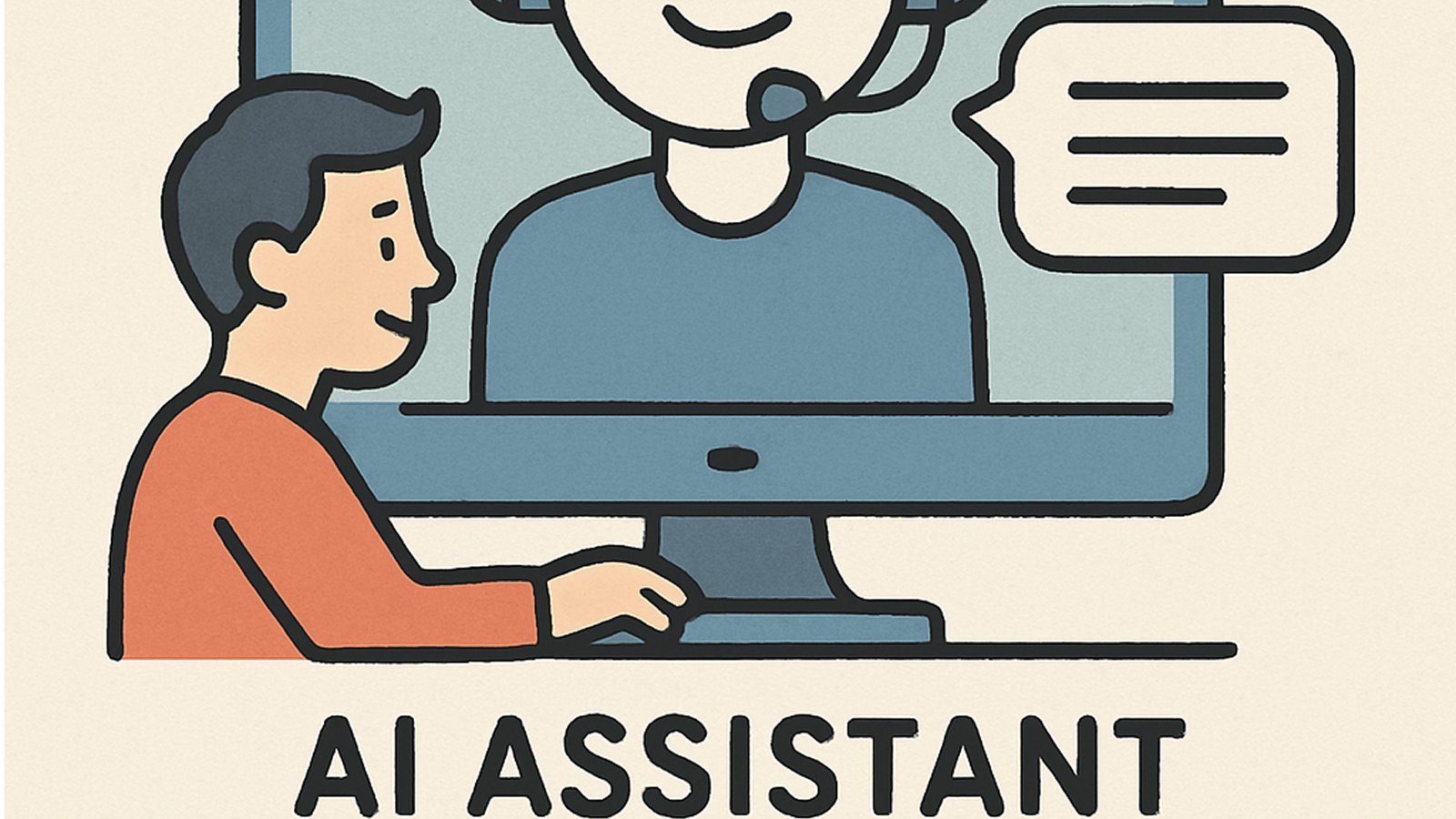
Features to Look for in AI Assistants
AI assistants are software programs designed to perform tasks or services for an individual. They use artificial intelligence to understand and respond to user commands, making them ideal for managing schedules, setting reminders, or even controlling smart home devices.
The Role of AI Task Managers
An AI task manager helps organize your tasks efficiently. It can prioritize your to-do list, set deadlines, and even remind you of upcoming meetings. A good AI task manager can significantly enhance your productivity by keeping you organized and on track. By utilizing machine learning algorithms, these managers can learn your habits and adjust their scheduling suggestions accordingly, ensuring that your workflow is optimized.
AI task managers also offer collaborative features, allowing teams to share tasks and deadlines seamlessly. This capability is crucial for remote teams that need to stay in sync across different time zones. Additionally, task managers can integrate with other tools like project management software, providing a centralized hub for all your work-related activities.
Best AI Personal Assistants
When searching for the best AI personal assistant, consider what you need it to do. Do you want it to handle simple tasks like setting reminders, or do you need it to perform more complex functions like managing your emails or making travel arrangements? The best AI personal assistant should be versatile and easy to interact with. Look for assistants that offer customization options, allowing you to tailor the interface and functionalities to suit your personal workflow.
Another factor to consider is the assistant's ability to learn from your interactions. Advanced AI personal assistants use deep learning to adapt to your preferences, ensuring more personalized and efficient service over time. Additionally, evaluate the assistant's compatibility with your existing digital ecosystem, including your smartphone, computer, and other smart devices. This integration ensures a seamless experience across all your platforms.
Finally, consider the assistant's support network and customer service options. A reliable AI assistant should offer easy access to help and troubleshooting resources, ensuring that any issues you encounter can be resolved swiftly. This support can include online forums, customer service hotlines, or even in-app help guides.
Key Features of AI Assistants
When evaluating AI assistants, certain features stand out as essential for maximizing their utility.
Voice Recognition and Interaction

The ability to interact with your AI assistant via voice commands is one of its most attractive features. Look for an AI assistant that offers accurate voice recognition and natural language processing. This ensures that the assistant understands your commands and responds appropriately. The effectiveness of voice recognition can greatly influence how naturally you interact with the AI, so it's worth testing different options to see which one feels the most intuitive.
Additionally, consider the assistant's ability to understand different accents and dialects. This inclusivity ensures that more users can benefit from the assistant's features without facing language barriers. Moreover, look for assistants that offer voice feedback options, which can enhance the interaction by providing auditory confirmation of tasks and commands.
Furthermore, assess the reliability of the voice recognition in various environments. High-quality AI assistants should be able to accurately interpret commands in both quiet and noisy settings, making them versatile tools whether you're at home, in the office, or on the go.
Integration with Other Apps and Devices
A top-notch AI assistant should seamlessly integrate with other applications and devices. Whether it's [syncing with your calendar app(https://codot.ai/)], managing your smart home devices, or accessing your emails, integration is crucial for a smooth user experience. This seamless connectivity ensures that your AI assistant acts as a central hub for managing your digital life.
Look for AI assistants that offer a wide range of compatible apps and devices. This flexibility allows you to expand the assistant's capabilities as your digital ecosystem grows. Additionally, consider the ease of setting up these integrations. A user-friendly setup process is essential for minimizing disruptions and ensuring that your assistant is ready to use as soon as possible.
Moreover, evaluate the assistant's ability to handle cross-platform tasks. For instance, a well-integrated assistant should be able to transfer information between your phone and computer effortlessly, enabling you to start a task on one device and finish it on another without losing any data or progress.
Customization and Personalization
The best AI assistants offer a degree of customization and personalization. This means they can learn your preferences and adapt their responses accordingly. This feature makes the AI assistant more efficient and tailored to your specific needs. Customization options can include adjusting the assistant's voice, changing its interface theme, and setting specific triggers for certain tasks.
Moreover, personalization extends to the assistant's ability to learn from your behavior. Advanced AI assistants can analyze your routines and suggest optimizations, such as recommending alternative meeting times based on your past schedules. This level of personalization can significantly enhance your productivity by reducing the time spent on repetitive tasks.
Additionally, consider how the assistant handles personal data. While personalization is beneficial, it's important that the AI assistant respects your privacy and offers options to manage or delete personal information. This balance ensures that you get a personalized experience without compromising your data security.
Security and Privacy
Security is paramount when dealing with any digital assistant. Ensure that the AI assistant you choose has robust security measures in place to protect your data and privacy. Features like end-to-end encryption and data anonymization are essential for safeguarding your information. These security measures prevent unauthorized access to your data and ensure that your interactions with the assistant remain confidential. Furthermore, investigate the assistant's data handling policies. A transparent privacy policy should clearly outline how your data is collected, stored, and used. This transparency is crucial for building trust with the AI assistant provider and ensuring that your information is handled responsibly.
Additionally, consider the assistant's compliance with international data protection regulations, such as the General Data Protection Regulation (GDPR). Compliance with these standards demonstrates the provider's commitment to maintaining high levels of data security and privacy.
AI Productivity Tools
AI productivity tools are designed to help streamline your daily activities. These tools can automate repetitive tasks, manage your emails, and even analyze data to provide insights. Here are some AI productivity tools that can enhance your efficiency:
Task Automation
Task automation is a critical component of AI productivity tools. It allows the assistant to handle routine tasks automatically, freeing up your time for more important activities. Look for features like automated email sorting, calendar management, and task prioritization. These automation capabilities can significantly reduce your workload by eliminating the need to manually manage repetitive tasks.
Moreover, explore the assistant's ability to create custom automation workflows. This feature enables you to design specific task sequences tailored to your unique needs, further enhancing your productivity. Additionally, check whether the assistant can integrate with third-party automation platforms, such as IFTTT or Zapier, for even more customization options.
Furthermore, consider the assistant's ability to adapt automation rules based on changing circumstances. A smart assistant should be able to adjust its automation logic as new information becomes available, ensuring that your tasks are always handled in the most efficient manner possible.
Data Analysis
Some AI assistants offer data analysis capabilities, allowing you to make informed decisions based on insights. This feature is particularly useful for business professionals who need to analyze large sets of data quickly. By leveraging machine learning algorithms, these assistants can identify patterns and trends within your data, providing valuable insights that inform your decision-making process. Additionally, consider the assistant's ability to present data visually. Visualizations such as charts and graphs can make complex data sets more accessible and easier to interpret. This capability is essential for communicating insights to team members or stakeholders who may not be familiar with the raw data. Moreover, evaluate the assistant's ability to integrate with your existing data sources. Seamless integration ensures that you can access all relevant information in one place, reducing the need for manual data transfers and minimizing the risk of errors.
Best Voice Assistant Features
When it comes to voice assistants, certain features enhance their functionality and make them more user-friendly.
Multi-Language Support
A good voice assistant should support multiple languages, making it accessible to a broader audience. This is especially important if you work in a multilingual environment or travel frequently. Multi-language support ensures that you can interact with your assistant in your preferred language, enhancing the overall user experience.
Additionally, consider the assistant's ability to switch languages seamlessly. This feature is particularly useful for users who regularly communicate in multiple languages, as it allows for smooth transitions between different linguistic contexts. Moreover, assess the accuracy of the assistant's language recognition, as this can greatly impact the effectiveness of its responses.
Furthermore, explore the assistant's ability to understand regional dialects and variations within a language. This inclusivity ensures that users from diverse linguistic backgrounds can benefit from the assistant's features without encountering communication barriers.
Contextual Understanding
Contextual understanding allows the voice assistant to interpret and respond to commands based on the context of previous interactions. This feature makes conversations with the assistant feel more natural and intuitive. By remembering past interactions, the assistant can provide more relevant responses and anticipate your needs more accurately.
Moreover, consider the assistant's ability to handle complex queries that require contextual awareness. This capability is essential for tasks that involve multiple steps or require nuanced understanding, such as booking travel arrangements or coordinating schedules. Additionally, evaluate the assistant's ability to maintain context across different devices, ensuring a consistent user experience regardless of the platform you're using.
Furthermore, explore the assistant's ability to learn from your interactions over time. A truly intelligent assistant should be able to refine its contextual understanding based on your preferences and habits, providing increasingly accurate and personalized responses.
Choosing the Right AI Assistant
Choosing the best AI assistant depends on your specific needs and preferences. Here are a few tips to help you make the right choice:
- Define Your Needs: Determine what tasks you want the AI assistant to perform and what features are most important to you. This clarity will help you focus your search on options that align with your specific requirements.
- Research Options: Compare different AI assistants and read reviews to understand their strengths and weaknesses. Take note of user feedback and expert opinions, as these can provide valuable insights into the assistant's performance and reliability.
- Test Before You Commit: Many AI assistants offer free trials. Take advantage of these to test their functionality and see if they meet your expectations. This hands-on experience will give you a better understanding of the assistant's capabilities and help you make an informed decision.
- Consider the Ecosystem: If you're already using certain apps or devices, choose an AI assistant that integrates well with them. Seamless integration ensures that your assistant fits naturally into your existing digital environment, minimizing disruptions and maximizing efficiency.
- Evaluate the Cost: While some AI assistants are free, others may come with a subscription fee. Consider your budget when making your decision. Keep in mind that the cost should be weighed against the benefits the assistant provides, ensuring that you're getting value for your investment.
The Future of AI Assistants

AI assistants are continuously evolving, with advancements in machine learning and natural language processing. The future promises even more sophisticated assistants capable of performing complex tasks and understanding human emotions.
Emerging Trends
- Emotion Recognition: Future AI assistants may be able to detect and respond to human emotions, making interactions more personalized. This capability could enhance the user experience by allowing the assistant to adapt its responses based on your emotional state, providing support and empathy when needed.
- Improved Accessibility: As technology advances, AI assistants will become more accessible to individuals with disabilities, further enhancing their quality of life. Features such as voice control, text-to-speech, and screen readers will continue to improve, ensuring that everyone can benefit from AI technology.
- Sustainability Features: AI assistants may incorporate features that promote sustainable living, such as energy-saving suggestions and eco-friendly tips. By providing insights and recommendations for reducing e
nergy consumption and waste, these assistants can contribute to a more sustainable future.
In conclusion, AI assistants have the potential to revolutionize how we manage our daily tasks and improve productivity. By understanding the essential features to look for and the latest trends, you can choose an AI assistant that best suits your needs. Embrace the future of AI technology and watch your productivity soar.